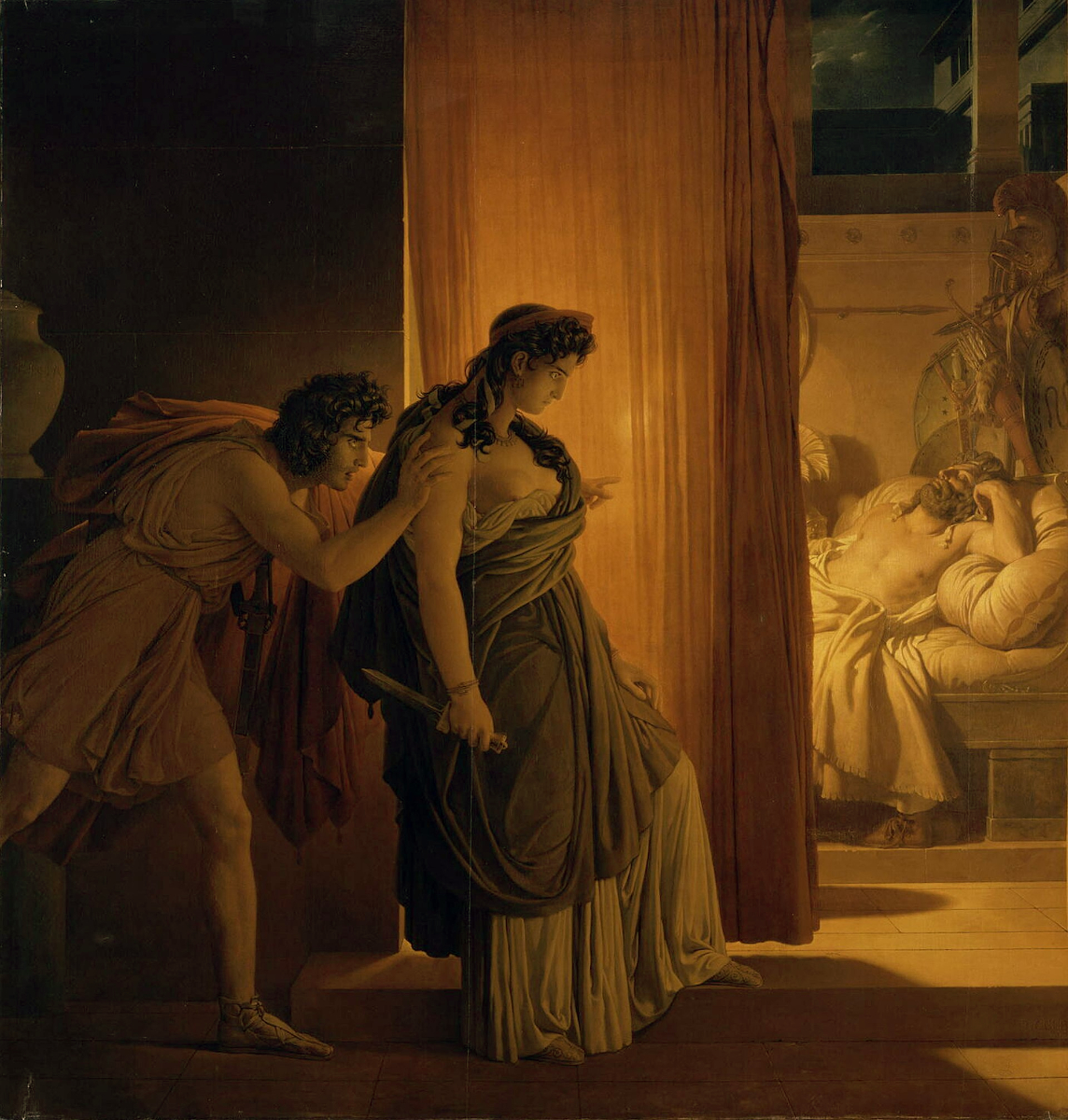Clytemnestra, in Greek mythology, was the wife of Agamemnon, king of Mycenae, and the half-sister of Helen of Sparta. In Aeschylus’ Oresteia, she murders Agamemnon – said by Euripides to be her second husband – and the Trojan princess Cassandra, whom Agamemnon had taken as a war prize following the sack of Troy; however, in Homer’s Odyssey, her role in Agamemnon’s death is unclear and her character is significantly more subdued.
| Alias Clytemnestra |
| Real Names/Alt Names Clytemnestra |
| Characteristics Myths & Legends, Bronze Age |
| Creators/Key Contributors Homer |
| First Appearance Greek mythology |
| First Publisher ○ |
| Appearance List Literature: Homer’s Odyssey (c. 8th century BCE, English 1614), Homer’s Iliad (c. 8th century BC), Virgil’s Aeneid (29 to 19 BC), 5th century plays by Aeschylus, Sophocles (Ajax, Philoctetes), and Euripides (Hecuba, Rhesus, Cyclops), Plato’s Hippias Minor, Shakespeare’s Troilus and Cressida (1602), Dante Alighieri’s Divine Comedy (1308–1320), Lord Tennyson’s “Ulysses” (1842), The Story of Greece: Told to Boys and Girls by Mary Macgregor (191-?) [Internet Archive], Frederick Rolfe’s The Weird of the Wanderer (1912), James Joyce’s Ulysses (1918–1920), Nikos Kazantzakis’ The Odyssey: A Modern Sequel (1938), Eyvind Johnson’s Return to Ithaca (1946), The Luck of Troy (1961), et. al. Film: The Mysterious Island (1905), L’Odissea (1911), Ulysses (1954), Ulysses (1955), The Trojan Horse (1961), The Fury of Achilles (1962), Ulysses Against the Son of Hercules (1962), The Lion of Thebes (1964), et. al. Comics: Blue Bolt vol. 2 #1-2, Treasure Chest vol. 14 #5. |
| Sample Read The Odyssey (Translated by W. C. Bryant, August, 1871) [Standard eBooks] |
| Description Clytemnestra, in Greek mythology, was the wife of Agamemnon, king of Mycenae, and the half-sister of Helen of Sparta. In Aeschylus’ Oresteia, she murders Agamemnon – said by Euripides to be her second husband – and the Trojan princess Cassandra, whom Agamemnon had taken as a war prize following the sack of Troy; however, in Homer’s Odyssey, her role in Agamemnon’s death is unclear and her character is significantly more subdued. |
| Source Clytemnestra – Wikipedia |



